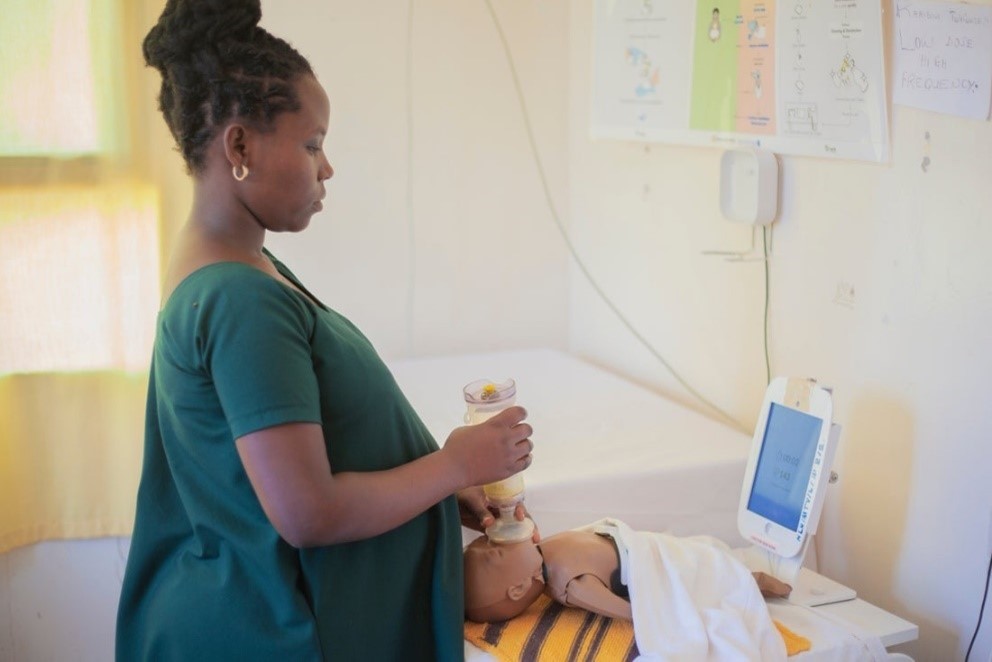March 2024
The implementation of the second phase of the Safer Birth Bundle of Care (SBBC) program in Tanzania has begun, reaching 152 hospitals across 5 regions with the aim of reducing maternal and neonatal mortality.
The scale up follows an implementation of SBBC from 2020-2023 in 30 hospitals, which showed promising preliminary results, including reductions in maternal mortality of 50%, with some regions experiencing a 70% reduction and neonatal mortality of 45%.

The scale up follows an implementation of SBBC from 2020-2023 in 30 hospitals, which showed promising preliminary results, including reductions in maternal mortality of 50%, with some regions experiencing a 70% reduction and neonatal mortality of 45%.
The SBBC program includes low-dose high-frequency on-the-job simulation-based training using clinical innovation tools, as well as continuous quality improvement initiatives and supportive mentorship, ensuring sustainability over time. This bundle was designed and developed as a result of fourteen years of global research from the Safer Births Research Consortium, and has been implemented collaboratively in Tanzania through Haydom Lutheran Hospital, SAFER, Laerdal Global Health and the Tanzanian Ministry of Health.

“As a result of the SBBC scale up, we know that over 2700 more health care workers will be trained, and their skills improved and maintained over time, to better manage leading causes of maternal and newborn mortality, such as birth asphyxia or postpartum hemorrhage.”
Dr Grace Qorro, Implementation Manager, Laerdal Global Health – Tanzania; and part of the implementation research team of the SBBC program
“The beginning of an implementation of this kind is always an exciting time. These first months will be spent actively training regional mentors and facility champions, as well as embedding the SimBegin facilitator course, which will enable educators and trainers to deliver effective simulation-based education. These are vital steps ahead of the widescale hands-on simulation training of healthcare workers beginning in the 152 facilities, which is expected from March 2024.”
Dr Benjamin Kamala, Principal Investigator for the SBBC project
In the lead up to the implementation, work has been ongoing to identify and recruit key regional mentors and facility champions; assess and ensure readiness of facilities for implementations; and support elements of infrastructure in facilities where needed.
Dr Kamala continues: “The preparatory work ahead of the implementation will allow for the program to make significant impact on the lives of mothers and babies sooner.”
It is because of the results of the first phase of the Safer Births Bundle of Care program in Tanzania (and the expected results, which will be published in 2024) that the further additional funding of 8.5 million USD was granted from the World Bank Global Financing Facility, which is making the significant scale up of the program possible.
“Simulation-based training, when implemented effectively, can really save lives and we’ve seen that in the first phase of the Safer Birth Bundle of Care program. We are excited to publish our final results and feel confident that the scale up of this program to 152 hospitals will result in hundreds more lives saved.”
Professor. Hege L Ersdal, Global Principal Investigator for Safer Births
As with the first phase, this second phase of the SBBC program will also be implemented through a collaborative approach from the Ministry of Health Tanzania, Haydom Lutheran Hospital, SAFER and Laerdal Global Health.
